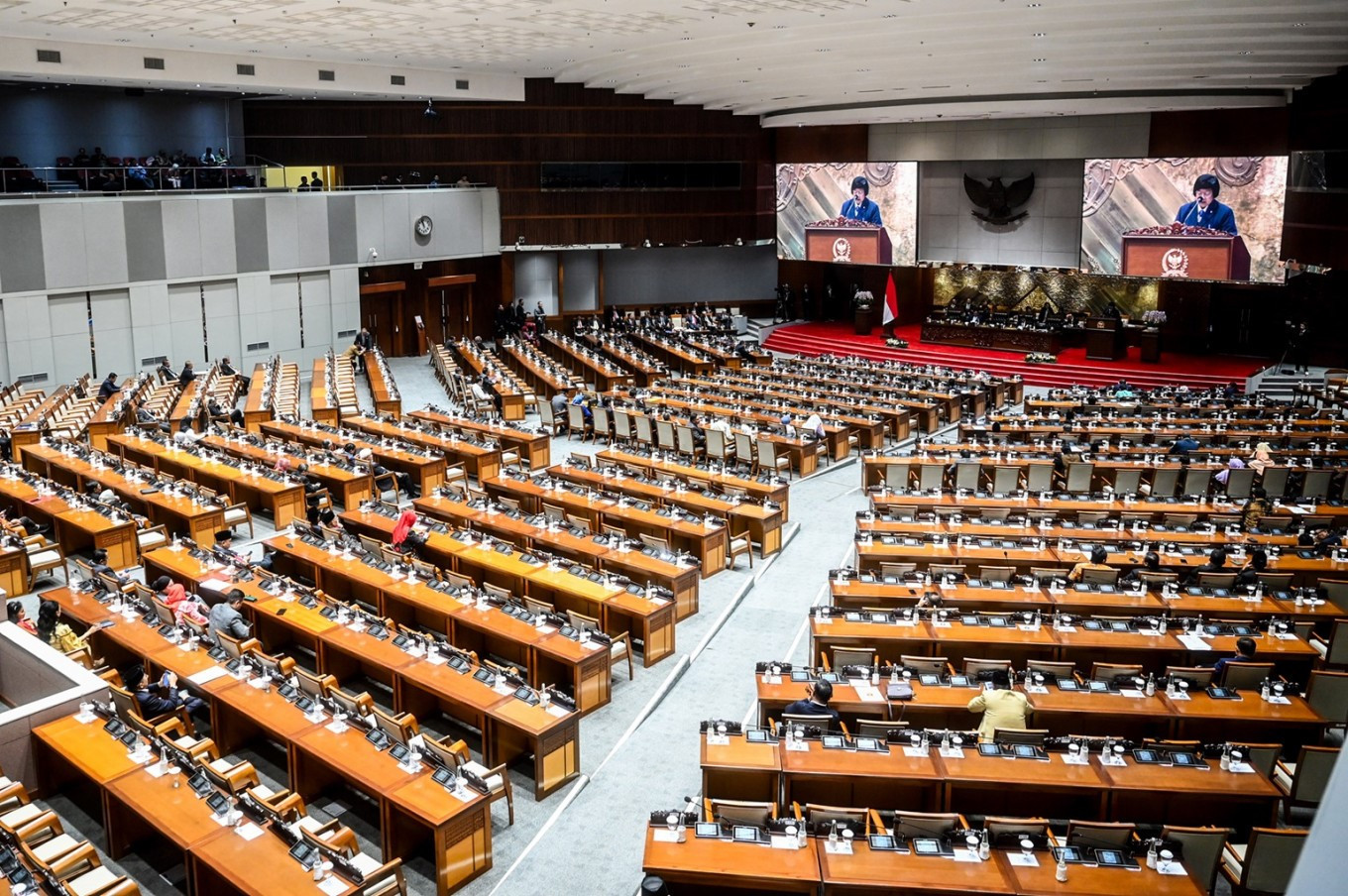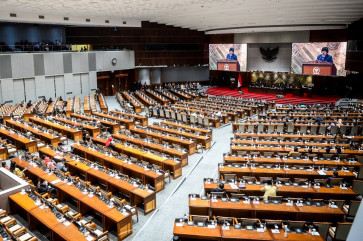Popular Reads
Top Results
Can't find what you're looking for?
View all search resultsPopular Reads
Top Results
Can't find what you're looking for?
View all search resultsAnalysis: House of Representatives still under control of ruling coalition
Change text size
Gift Premium Articles
to Anyone
T
he newly inaugurated members of the House of Representatives began their term on Oct. 1 amid public skepticism as to whether they can make a break with the past. Although many new faces characterize the 580-strong House, the old big-tent coalition maintains its control over the legislative branch.
The previous House was criticized for acting as a rubber stamp for government policies, which often were produced through rushed deliberations without meaningful public participation. This happened because now outgoing President Joko "Jokowi" Widodo received support from seven out of the nine factions in the House. The composition of the new House is largely similar, with eight of the nine political parties supporting president-elect Prabowo Subianto. The Indonesian Democratic Party of Struggle (PDI-P) has not yet announced its stance toward the incoming government, but there is a chance for the largest party to join the ruling coalition.
Prabowo has repeatedly expressed his intention to meet PDI-P chairwoman Megawati Soekarnoputri, a move which is seen as an effort to bring the party into his Onward Indonesia Coalition (KIM). According to PDI-P politician Arya Bima, the much-awaited meeting would determine the party’s position vis-à-vis Prabowo’s government.
Currently, the PDI-P has the most seats with 110, followed by the Golkar Party with 102, the Gerindra Party with 86, the NasDem Party with 69, the National Awakening Party (PKB) with 68, the Prosperous Justice Party (PKS) with 53, the National Mandate Party (PAN) with 48 and the Democratic Party with 44.
PDI-P politician Puan Maharani reclaimed her position as the House speaker courtesy of the Legislative Institutions (MD3) Law, which reserves the top post for the party with the most seats. Puan will be assisted by four deputy speakers: Golkar’s Adies Kadir, Gerindra’s Sufmi Dasco Ahmad, NasDem’s Saan Mustopa and the PKB’s Cucun Ahmad Syamruijal.
Given the previous term’s poor track record and recurring instances of rushed deliberations, such as in the drafting of the Job Creation Law, the Association for Elections and Democracy (Perludem) has reminded the new House of its responsibility to serve as a bridge between the public and the government.
Such a demand is a tall order for the House. Prabowo’s coalition controls 470 seats, or approximately 81 percent. This is nearly the exact same number as the coalition that supported President Jokowi’s second term from 2019 to 2024, during which he was backed by seven parties that controlled 471 seats, or 82 percent of the House. In the fifth year, this number increased to 91 percent after the Democratic Party decided to join the coalition.



















